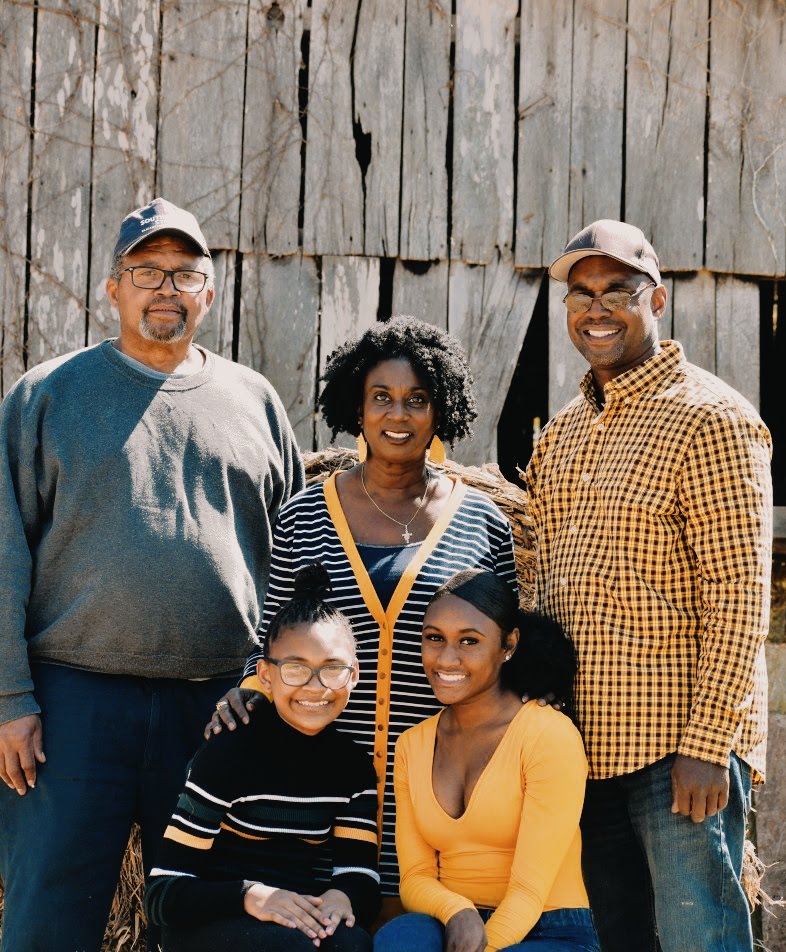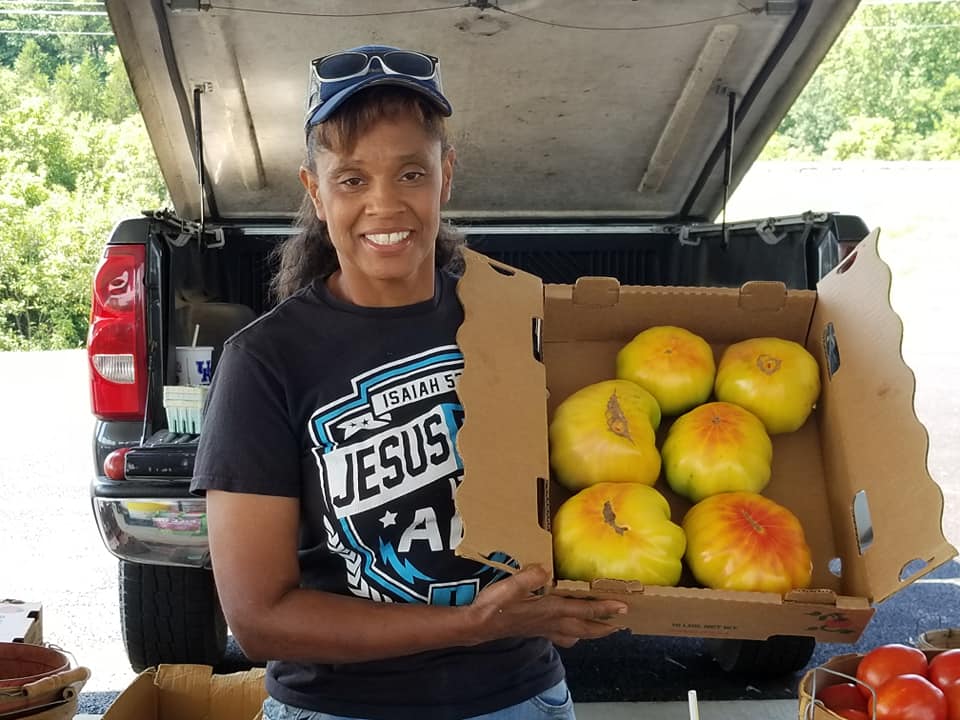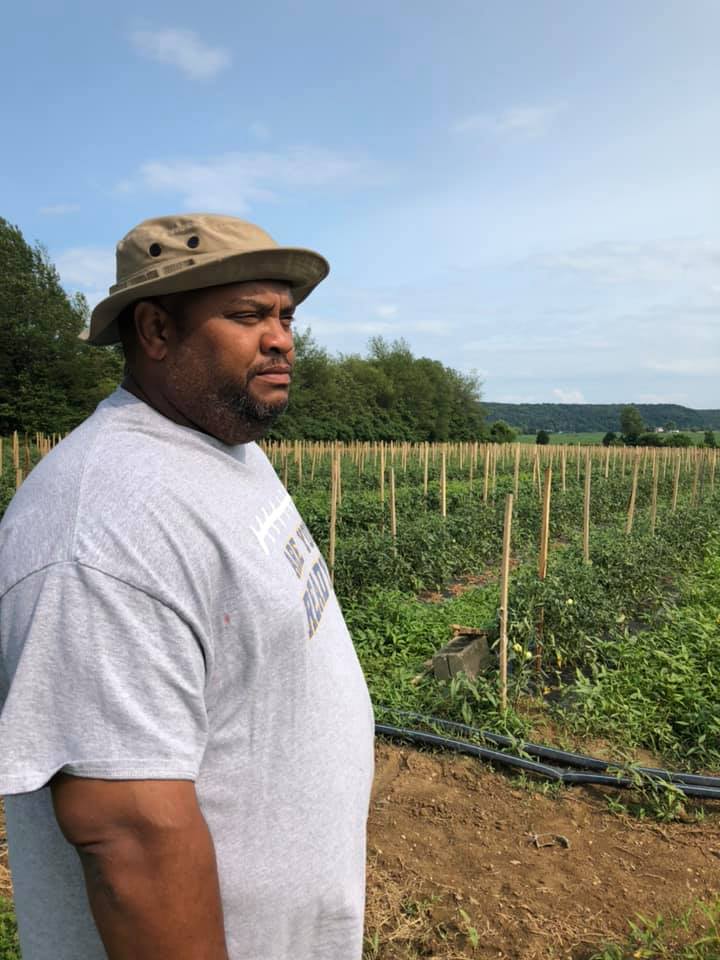Based in Lexington where there are vast horse farms and equestrian races, the Black Soil agritourism company is reconnecting Black Kentuckians to their agricultural roots. Through acknowledging the legacy and relevancy agriculture and farming have always been major cultural components throughout Black history, specifically in the United States where 400 years of slavery forced many Black Americans into plantations where they lived and farmed.
In Kentucky, roughly 77,000 farm operators state-wide are managed by white owners while only 1.4% of those farmers are Black. Roughly 430 Black farmers are present in Kentucky and are contributing to the flourishing agriculture industry.
“My eyes were just blown away by the erasure of Black visibility in Kentucky,” co-founder of Black Soil, Ashley Smith told Travel Noire. “The ability to socially convince Black people that they aren’t farmers, even though when you study Kentucky, we are the architects of hemp, tobacco, equine and distilling here in the state.”
Ashley Smith grew up in Kentucky and instantly identified the sense of disregard towards Black agricultural industry laborers and farmers that engaged in the same daily labors as their domineering white counterparts in the same state. She studied sociology at the University of Kentucky and shortly after made it her calling to help expand social awareness for traveling Black urban families and Kentucky locals to understand the importance of the Black farmer legacy statewide and nationally.

“We started off doing farm tours, and we work to convince people living in Louisville and Lexington to travel outside, not only in their comfort zone, but their region, and bring them into small rural communities where our Black farm families reside,” Smith added. “The desire, first and foremost, is to build relationships with people that then fostered and cultivated an appreciation for our leisure activities and events to train people to buy Black.”
The Black Soil experience is intended to shift the narrative of how American history is told about white figures being the trailblazers in the farming and agriculture industry in the United States. In the mid-1800s, the ninth Secretary of State in Kentucky was Henry Clay. He was revered for his supposed innovations and contributions to the progression of one of the most lucrative industries in the country.
Black Soil leader, Ashley Smith, is hoping to retell that historical misinterpretation by educating the masses and her visitors about the rightful farm history of Kentucky.

“Henry Clay owned 122 men, women and children at an approximate 650 acre plantation called Ashland, but he goes down in the history books as the purveyor, innovator and creator of many farming techniques around him,” she acknowledged. “That is not true. When we activate critical thinking, deductive reasoning says if Henry Clay lived in Washington D.C. for 25 years then who was actually cultivating that hemp. It was the enslaved men and historically and socially, white people would have never touched hemp or tobacco.”
Outside of the educational resources provided during a visit at the Black Soil experience, the farm tours and farm-to-table dinners all accompany cooked meals and dishes provided by local Black farmers and chefs. In Lexington, less than 1% of the overall market share of active chefs are Black. So, Black Soil hosts partnered events for Black families to encourage them to circulate their American dollars through their own racial community.
Customarily, there is a 1 product minimum for attendees to support their local Black entrepreneurs and farmers. Through June 17th to June 27th, Black Soil will be organizing a 10-day Black food and drink restaurant market for Soul Feast Week in Central Kentucky that way patrons can participate in the economic development of the state’s Black community.
“We remind them that farm-to-table was designed and curated by chef Edna Lewis, a Virginia-based Black chef and farmer,” Smith explained. “CSA (Community Supported Agriculture) was cultivated by Dr. Booker T. Whately, a rural-based Black Alabama farmer who saw the decline of Black farmers in his region in the 1960s. So, these items that have been co-opted from our culture are rightfully ours to grab onto. People get really excited to learn about us. It motivates them to know that they’re supporting Black-owned and then most importantly, they’re able to support a Black farmer who is receiving one hundred percent of their asking price.”

Black Soil and the organization’s initiatives will rejuvenate Kentucky with the Black heritage and spirit that the state needs. The aim is to bring in more Black tourists and visitors that aren’t just coming to the state because that is where they grew up.
Smith is pushing for racial equity and acknowledgment in the agriculture industry by making Kentucky more of a significant epicenter of Black agricultural history rather than a state to fear due to its palpable historical connections to plantations and slavery.





